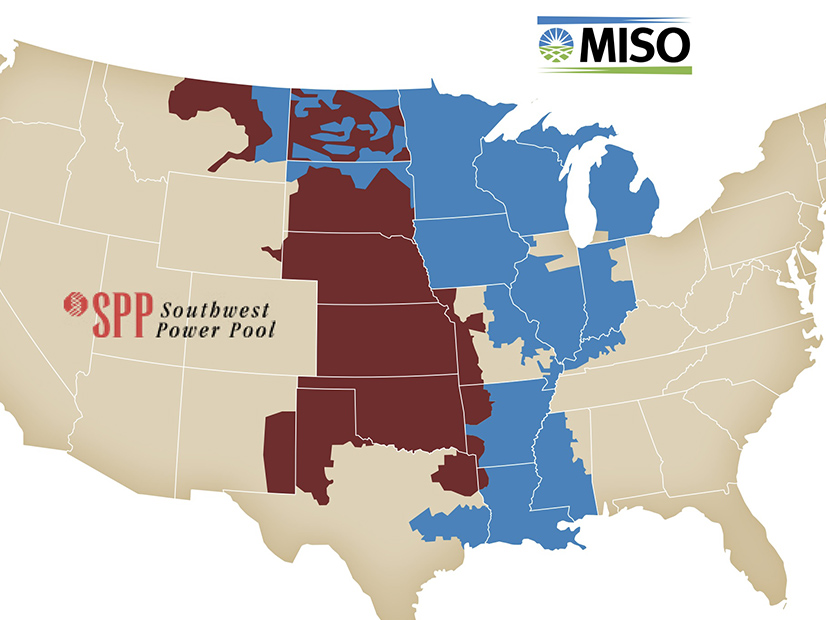MISO and SPP on Friday announced that they have completed their Joint Targeted Interconnection Queue (JTIQ) study, though two of the project proposals might not proceed under the interregional planning effort.
The final study report’s portfolio includes seven projects, costing about $1.65 billion, designed to foster more generator interconnections and unclog the RTOs’ queues. If approved, the transmission projects could resolve 48 reliability constraints and deliver about $724 million in adjusted production costs savings to MISO and $247 million to SPP.
However, two of the JTIQ’s portfolio projects are also included in MISO’s long-range transmission portfolio. The transmission lines, in North Dakota and from South Dakota to Minnesota, could invalidate or seriously alter the RTOs’ plans for similar projects. (See MISO Stakeholders Uneasy Over Long-range Tx, JTIQ Overlap.)
MISO stakeholders have asked that SPP load bear some of the two projects’ costs, even if SPP’s benefits are shown to be small. Both projects are in the MISO footprint.
MISO planners have been firm that their long-range planning takes priority over the JTIQ study. Staff have also said the RTO’s benefits on the two projects eclipse SPP’s, and they have pointed out that the grid operators haven’t yet delved into meaningful cost-allocation negotiations.
According to the JTIQ study, the $424.5 million South Dakota-Minnesota line yields a $487 million APC benefit to MISO and a $32 million benefit to SPP. The $165 million North Dakota line results in $405 million in benefits to MISO and $56 million in SPP benefits.
The JTIQ study began in late 2020 and evaluated 59 project ideas. MISO kicked off its long-range planning in mid-2020.
In a joint statement accompanying the study’s release, MISO CEO John Bear and SPP CEO Barbara Sugg said the need to build transmission to accommodate increasing renewable energy requests “transcends boundaries.”
They said a lack of new transmission projects along their seam caused generation projects in both footprints “to drop out of the study process because costly network upgrades are triggered.”
MISO’s interconnection queue currently contains 127.1 GW of proposed generation. SPP has 97 GW worth of new generation in its queue. Both are overwhelmingly tipped toward renewable energy and storage projects.Their analysis shows the JTIQ portfolio could support a range of 28 to 53 GW worth of new generation along their seam.
“Both MISO and SPP have existing planning processes, and the JTIQ partnership allowed us to focus on future reliability risks based on the trends in our generation portfolios,” Antoine Lucas, SPP vice president of engineering, said in a press release. “The resulting portfolio of projects fully resolves the set of transmission constraints evaluated in the study, providing considerable reliability benefits to both RTO regions.”
The RTOs said they’re after an “equitable cost allocation mechanism between interconnection customers and load in MISO and SPP.” They expect cost-allocation discussions to continue “well into 2022.”




